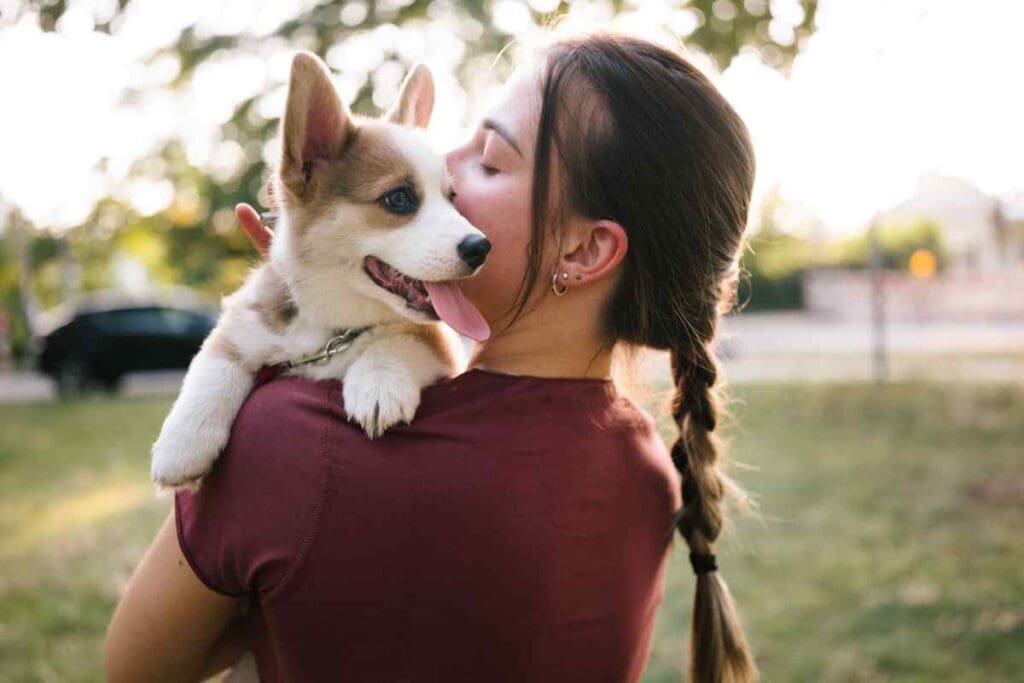Key Tips for Raising a Well-Behaved Companion
Welcoming a new puppy into your home is an exciting and fulfilling experience. Alongside the joy of having a furry companion comes the responsibility of understanding their puppy behavior and providing essential puppy training. This comprehensive guide delves into the fundamentals of a basic puppy training guide, offering crucial tips for managing new puppy behavior and laying the groundwork for a well-behaved pet.
Understanding New Puppy Behaviour
Like infants, puppies explore the world through their senses and instincts. Understanding their behavior is key to effective training and fostering a strong bond.
Puppies are inherently curious and playful. They learn about their environment by chewing, digging, and exploring. While these behaviors are normal and essential for their development, they can also present challenges such as house soiling, destructive chewing, and excessive barking if not properly managed.
Essential Puppy Training Basics
- Socialization: Introducing your puppy to various people, animals, and environments early on is crucial for its social development. Socialization, a key component of any basic puppy training guide, helps prevent fearfulness and aggression as puppies mature. Gradually expose your puppy to different sights, sounds, and experiences in a positive and controlled manner to build confidence and adaptability.
- Basic Commands: Teaching basic commands like sit, stay, come, and down establishes communication and reinforces obedience. Use positive reinforcement techniques such as treats and praise to encourage desired behaviors effectively.
- House Training: Any basic puppy training guide must include a consistent bathroom break routine. To reinforce positive behavior, reward your puppy for eliminating in appropriate areas. During house training, patience and consistency are key, as accidents are part of the learning process. Guiding your puppy with understanding and positive reinforcement will help them learn the desired behaviors more effectively.
- Leash Training: Gradually introduce your puppy to a collar and leash. Start with short indoor sessions and progress to outdoor walks. Use positive reinforcement to encourage walking calmly on a leash without pulling.
New Puppy Behavior Tips
Chewing: Provide appropriate chew toys to satisfy your puppy’s natural urge to chew. Rotate toys regularly to keep them engaged and prevent boredom.
Biting: Puppies explore the world with their mouths, but it’s essential to discourage biting behavior early on. Redirect their attention to toys and discourage rough play.
Crate Training: Crate training can aid in-house training and provide a haven for your puppy. Introduce the crate gradually and associate it with positive experiences such as meals and rest time.
Handling and Grooming: Accustom your puppy to being handled and groomed from an early age. This includes brushing, nail trimming, and ear cleaning. Make these experiences positive and rewarding to reduce anxiety during grooming sessions.
Importance of a Basic Puppy Training Guide
An essential puppy training guide is a roadmap for new puppy owners, offering structured approaches to teaching essential skills and managing behavior effectively. Following a comprehensive guide can establish a solid foundation for your puppy’s development and ensure a harmonious relationship based on trust and understanding.
Benefits of Essential Puppy Training
- Behavioral Development: Proper training shapes your puppy’s behavior, teaching them appropriate responses to various situations and commands. This lays the groundwork for a well-mannered and socially adept adult dog.
- Bonding and Communication: Training sessions strengthen the bond between you and your puppy. Consistent training establishes clear communication and builds mutual trust, enhancing your relationship over time.
- Prevention of Behavioral Issues: Early training helps prevent common behavioral issues such as aggression, excessive barking, and destructive behavior. Addressing these behaviors proactively creates a positive environment conducive to your puppy’s well-being.
- Safety and Management: Training enables you to effectively manage your puppy’s behavior, ensuring their safety in different environments and situations. Basic commands like recall and stay can prevent accidents and promote responsible ownership.
Puppy Training Tips for Success
- Start Early: Begin training when you bring your puppy home. Early experiences shape their behavior and learning abilities.
- Be Consistent: Use cues, rewards, and corrections during training sessions to effectively reinforce desired behaviors.
- Patience and Positive Reinforcement: Patience is essential during training. Use positive reinforcement techniques such as treats, praise, and playtime to motivate and reward your puppy.
- Seek Professional Guidance: If you encounter challenges or behavioral concerns, seek guidance from a certified dog trainer or behaviorist. Professional support can provide personalized strategies and solutions tailored to your puppy’s needs.
Conclusion
Training your new puppy is a rewarding journey that requires dedication, patience, and a commitment to understanding their needs. Following a basic puppy training guide and incorporating essential training basics into your daily routine sets the stage for a happy and well-adjusted companion.
Each puppy is unique, and training methods may vary based on temperament, breed, and individual preferences. Tailor your approach to suit your puppy’s personality and learning style, and celebrate milestones.
As you embark on this adventure with your new puppy, embrace the opportunity to nurture a lifelong bond built on trust, respect, and mutual companionship. With a solid foundation in training and understanding, you and your puppy will enjoy a fulfilling journey together, navigating life’s joys and challenges with confidence and companionship.

